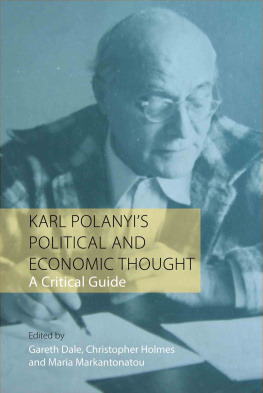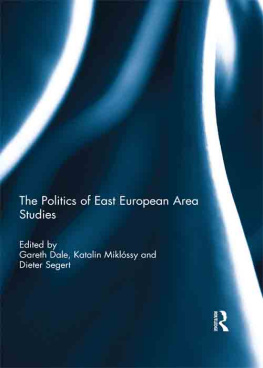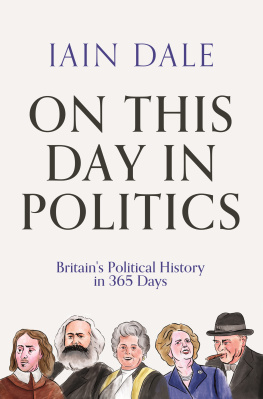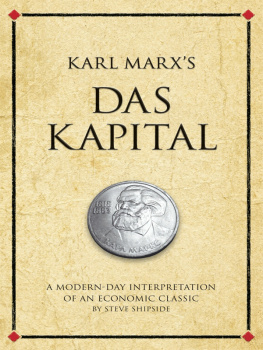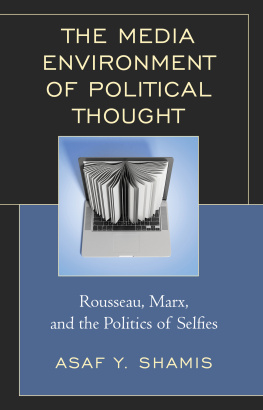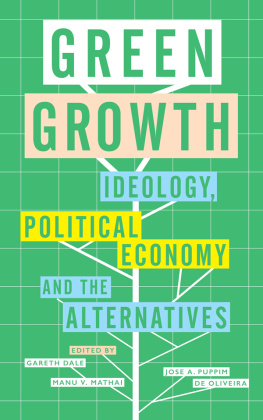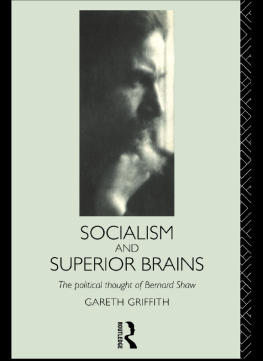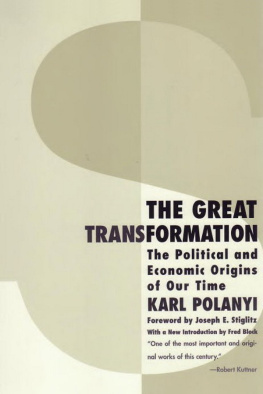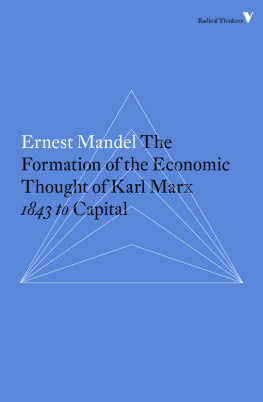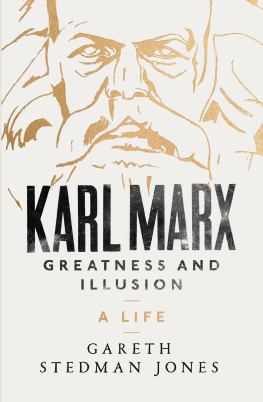Editorial matter and selection, 2019 Gareth Dale, Christopher Holmes, Maria Markantonatou. Individual contributions, the contributors.
This book is copyright under the Berne Convention.
No reproduction without permission.
All rights reserved.
First published in 2019 by Agenda Publishing
Agenda Publishing Limited
The Core
Bath Lane
Newcastle Helix
Newcastle upon Tyne
NE4 5TF
www.agendapub.com
ISBN 978-1-78821-089-8 (hardcover)
ISBN 978-1-78821-090-4 (paperback)
British Library Cataloguing-in-Publication Data
A catalogue record for this book is available from the British Library
Typeset by JS Typesetting Ltd, Porthcawl, Mid Glamorgan
Printed and bound in the UK by TJ International
CONTENTS
CHRISTOPHER HOLMES
CHRISTOPHER HOLMES AND DAVID YARROW
RANDALL GERMAIN
MARIA MARKANTONATOU AND GARETH DALE
SANDRA HALPERIN
SAMUEL KNAFO
KURTULU GEMICI
HSEYIN ZEL
GARETH DALE AND MATHIEU DESAN
PAULA VALDERRAMA
TILMAN REITZ
MICHAEL BURAWOY
THE CONTRIBUTORS
MICHAEL BURAWOY teaches at the University of California, Berkeley. He is the author of Symbolic Violence: Conversations with Bourdieu (2019).
GARETH DALE teaches at Brunel University. His books include Reconstructing Karl Polanyi (2016) and Karl Polanyi: A Life on the Left (2016).
MATHIEU DESAN is Assistant Professor of Sociology at the University of Colorado Boulder.
KURTULU GEMICI teaches at the National University of Singapore. His publications include Karl Polanyi and the Antinomies of Embeddedness (Socio-Economic Review, 2008) and The Neoclassical Origins of Polanyis Self-Regulating Market (Sociological Theory, 2015).
RANDALL GERMAIN is Professor of Political Science at Carleton University. His teaching and research explores the political economy of global finance and the evolution of theories of international political economy.
SANDRA HALPERIN is Professor of International Relations at Royal Holloway, University of London. Her research areas include global development, the historical sociology of global relations, the causes and conditions of war and peace, and Middle East politics.
CHRISTOPHER HOLMES is a Lecturer in International Political Economy at Kings College, London. He is the author of Polanyi in Times of Populism: Vision and Contradiction in the History of Economic Ideas (2018).
SAMUEL KNAFO is a Senior Lecturer in International Relations at the University of Sussex. He is the author of The Making of Modern Finance: Liberal Governance and the Gold Standard (2013)
MARIA MARKANTONATOU received her PhD in 2005 from Albert Ludwigs University, Freiburg, Germany. She is an Assistant Professor in political sociology at the University of the Aegean, Lesvos, Greece, and is currently working on the crisis in Greece.
HSEYIN ZEL is Professor of Economics at Hacettepe University, Turkey. His doctoral dissertation, at University of Utah, was on the social theory of Karl Polanyi. His current research is on globalization and the social/economic consequences of neoliberalism.
TILMAN REITZ is a professor of sociology at the University of Jena, Germany. He received his PhD in philosophy in 2001 and has been working in both disciplines since 2009.
PAULA VALDERRAMA is a philosopher and economist. She wrote her doctoral thesis on the social philosophies of Karl Polanyi and Friedrich Hayek at Free University Berlin.
DAVID YARROW is a research fellow at the University of Edinburgh, having completed his PhD at the University of Warwick in 2018. He is currently researching post-growth statistical and accounting systems in global governance.
Christopher Holmes
This book is designed to offer something to anyone with an interest in Karl Polanyis work, whether a newcomer or a seasoned scholar. Each chapter offers a comprehensive description and discussion of his major theses and ideas in relation to ten themes essential to his work, followed by an afterword which considers the insights offered by the book as a whole. The chapter themes span the range of Polanyis political and economic interests, from the importance of economic ideas, the various facets of the international economic system and the role of the state, to his understanding of class, fascism and democracy. By reading the whole volume, the reader can expect to come away with a full overview of Polanyis political and economic thought and one which clearly unpacks the relevance of his ideas to subsequent scholarship and contemporary issues.
The reader should not, however, expect to be presented with a single, unified picture of Polanyis intellectual contribution, because none exists. This is in part because Polanyi was a writer and a polymath rather than a straightforward academic labourer, confined within the bounds of a particular discipline. Following training as a lawyer in Budapest, he spent formative years as a journalist in Vienna writing for the widely-read periodical Der sterreichische Volkswirt. After that, he moved to Britain, supplementing continuing journalism with often precarious work tutoring for various universities and adult education institutions. These two periods were critical to Polanyis intellectual formation and are capped by the publication of his celebrated historical analysis of industrial capitalism, The Great Transformation, in 1944. Only after this point did Polanyi secure permanent academic posts in the United States, first at Bennington College, then Columbia University. From there, Polanyi wrote or contributed to a number of academic articles and books focused largely on issues of ancient economic anthropology.
It is striking how different Polanyis writing is during each of these periods, speaking to different audiences with different aims, often using the vocabulary of different disciplines. On this basis, a case could perhaps be made for attempting to divide ones presentation of his work biographically, into distinct phases of output, emphasizing the situatedness of each period with the associated intellectual terms of debate. Yet this would give a somewhat artificial picture, because common interests and strains of argumentation weave across these periods. Moreover, such an approach would discourage comparison between the varied ways in which Polanyi articulated key ideas over time, which is arguably one of the most intellectually productive ways of examining his work. Reflecting these points, many of the chapters in this book explicitly attempt to connect the dots between Polanyis different periods of output, identifying both key continuities, and key changes, in his views. Some of these take the form of innovative arguments about well-known issues of interest: international political economy, the gold standard, commodification, etc., while others piece together a picture of Polanyis thought on less well-appreciated themes such as knowledge and money theory.
This polymathism leads to a second reason: such is the success of Polanyis conceptual contributions to scholarship that parts of it now feature in the standard lexicon of thought in a variety of social scientific disciplines. With that success has come a variety of different perspectives on its strengths and its weaknesses. Some of this variety can be traced to a not inconsiderable amount of ambiguity in Polanyis formulation of key ideas, but it is also due to the fact that there are a series of ongoing debates within the community of Polanyi scholars on a variety of questions, including the proper interpretation of key concepts, the degree of importance one should assign to other traditions of thought in understanding his ideas (particularly neoclassical economics and Marxism), the relationship between his early political economy and his later anthropology and the extent to which his ideas can be translated into contemporary contexts meaningfully. Rather than seeing these as debates that can be settled once and for all, one should see them as indicative of strength in the Polanyian tradition. This book as a whole, in which his thought is relayed by thirteen leading experts in the field, avoids closing down any of these questions. Instead, it provides the reader with a wide range of perspectives on them, inviting the reader to formulate their own views.


